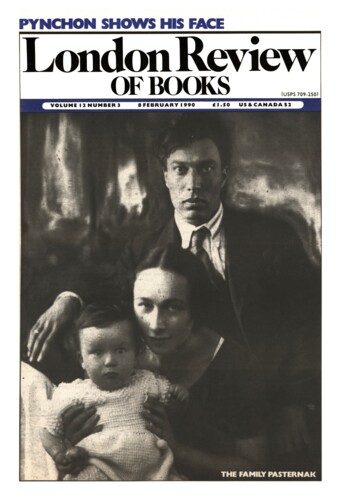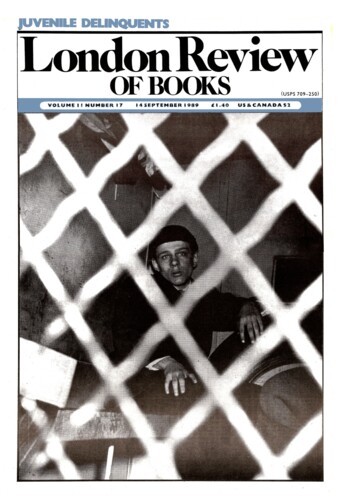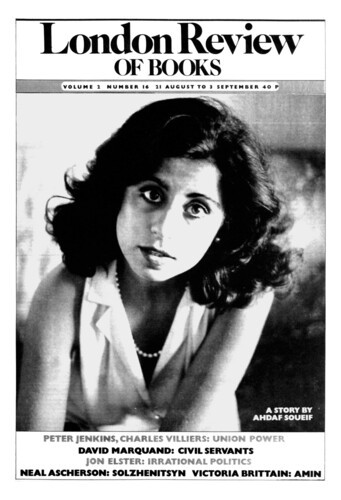Clive’s Clio
Hugh Tulloch, 8 February 1990
The world’s great age begins anew, and we have all become Victorians again. Mrs Thatcher pursues strict economies with a single-mindedness Gladstone would have envied and calls us back to traditional values, while on television Mr A.N. Wilson approaches the eminent Victorians in a manner far different from that of Lytton Strachey seventy years ago. In 1918 Strachey intended to blow up, once and for all, the stale and inhibiting pieties of his parents and their generation. When the Oxford historian G.M. Young read Eminent Victorians he commented, ‘We’re in for a bad time,’ and set about planning an act of restitution which appeared in 1934 as Early Victorian England: Portrait of an Age, since which time the historical counter-revolution has come full circle.



